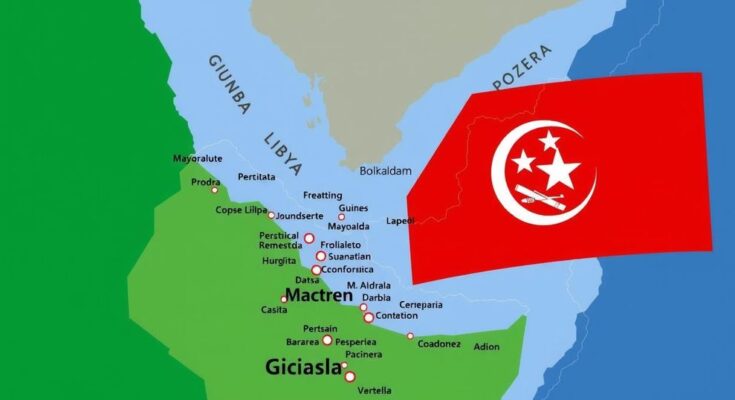Guinea-Bissau’s Ministry of Foreign Affairs has denied any links to Amadou Lamine Sano, who incorrectly claimed to be a presidential advisor and met with Libyan officials. The ministry stated Sano has no official role and urged Libyan authorities to take action against such misrepresentations. The incident highlights the need for accurate diplomatic channels amidst ongoing political complexities in Libya.
The Ministry of Foreign Affairs of Guinea-Bissau has formally dismissed any associations with Amadou Lamine Sano, who purportedly claimed to hold the position of special advisor to the President of Guinea-Bissau and engaged with officials in Libya. In their official statement, the ministry unequivocally asserted that Mr. Sano does not possess any official capacity within the Guinean government, lacks the role of presidential advisor, and has not been empowered to convey any communications on behalf of the government. Additionally, the ministry has urged Libyan authorities to take necessary actions to prevent similar future occurrences. This comes in light of recent reports from Libya’s parallel government, which indicated that Sano was hosted at the Foreign Ministry in Benghazi, where he was misrepresented as a Minister of State and Ambassador Extraordinary. During this visit, discussions were said to revolve around strengthening bilateral cooperation and addressing regional matters. Furthermore, Sano’s interactions included a meeting with Misbah Douma, the Second Deputy Speaker of Libya’s House of Representatives, where he allegedly transmitted greetings from the President of Guinea-Bissau and deliberated on collaborative efforts between the two nations.
This incident highlights the complexities of political representation and the potential for misinformation in international relations. Guinea-Bissau’s swift response illustrates the government’s commitment to clear misrepresentations that might undermine its diplomatic integrity. The engagement with Libyan officials by an individual claiming to be an advisor reflects ongoing dynamics in Libya, particularly concerning its parallel governance structure that can lead to confusing scenarios for foreign interactions. This situation also emphasizes the importance of maintaining correct diplomatic channels and clear representation.
In conclusion, the Guinean Foreign Ministry’s prompt denial of any association with Amadou Lamine Sano reinforces its stance on maintaining legitimate diplomatic relations and representation. By clarifying Sano’s lack of official status and encouraging Libyan authorities to act against such misrepresentations, Guinea-Bissau underscores the significance of accurate political communication, which is crucial for fostering trust and cooperation in international affairs.
Original Source: libyaobserver.ly




